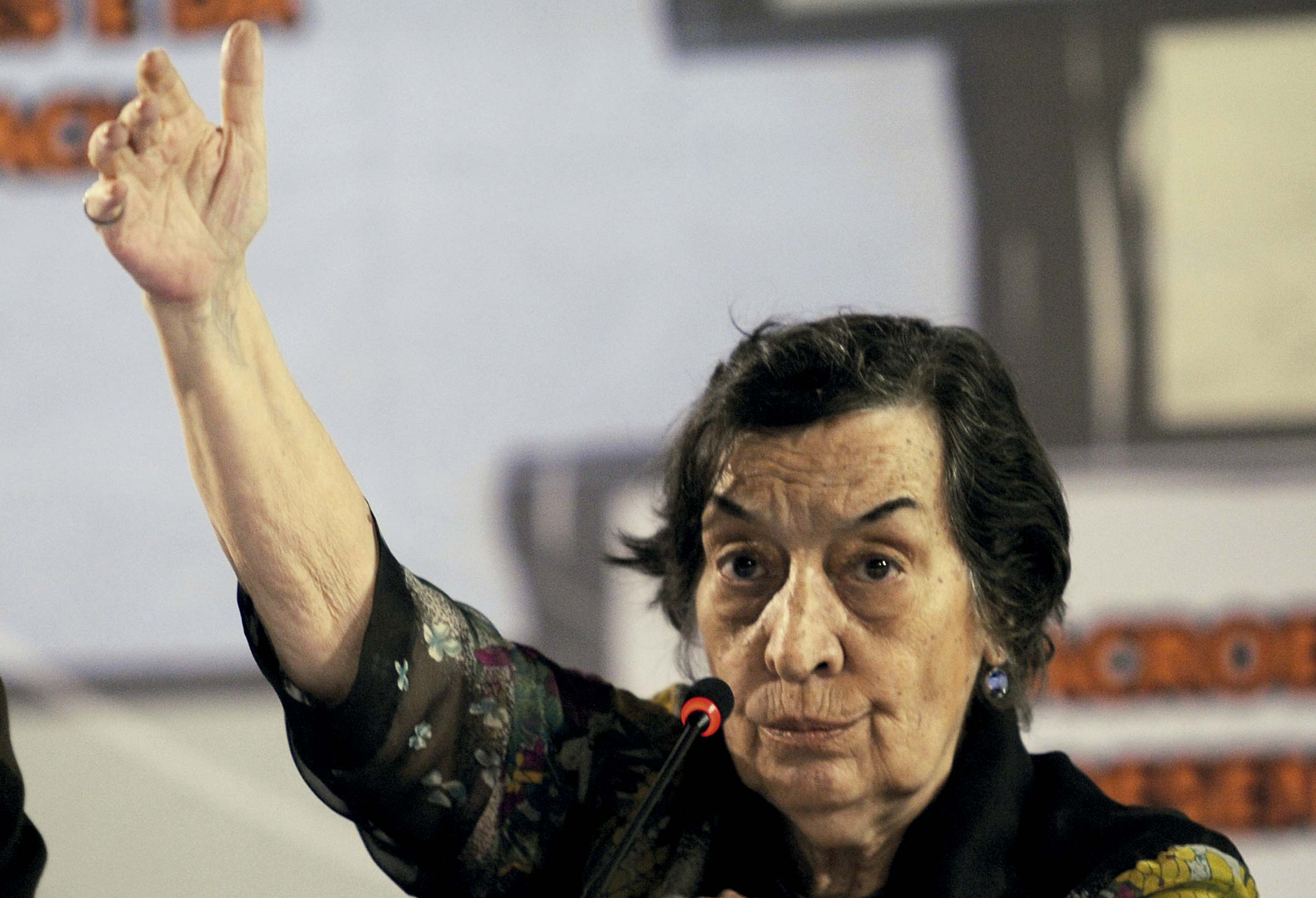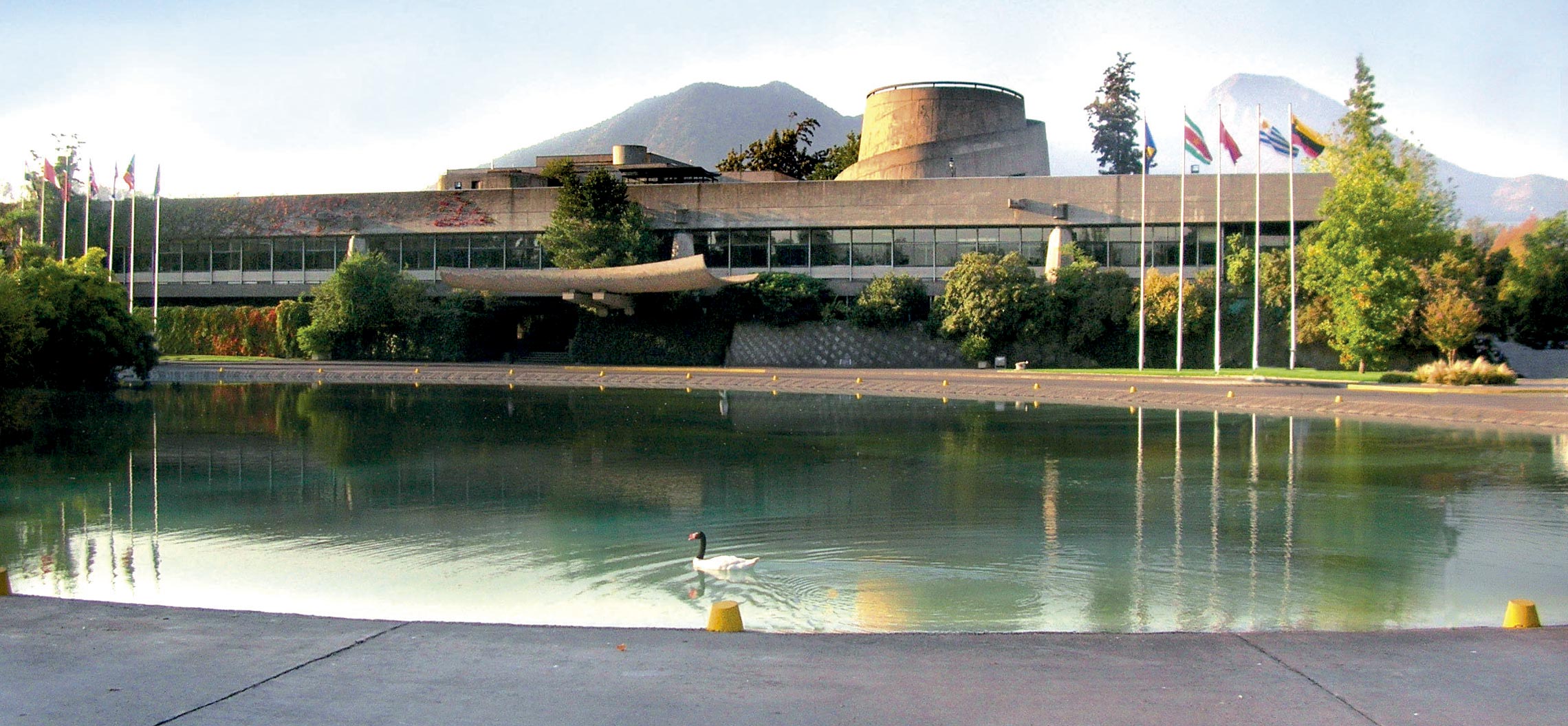Seldom have the countries of Latin America coordinated their thinking on the region’s problems as they did when they created the United Nations Economic Commission for Latin America and the Caribbean (ECLAC). Founded 70 years ago in February 1948, ECLAC became a school of thought that ran contrary to traditional economic ideas, maintaining its commitment to conceiving development strategies for Latin American countries.
Its creation came amidst a sweeping reorganization of the world economy. Europe was recovering from the Second World War (1939–1945), and in Africa several countries had achieved independence, becoming new actors in the international system, alongside Latin America. To ensure that these countries were incorporated into the system of international relations, the newly created United Nations organization created temporary committees to assess the economic and social conditions of these nations.

Reproduction of the book Raúl Prebisch (1901–1986): The Construction of Latin America and the Third World
Raúl Prebisch at the United Nations Conference on Trade and Development, in 1968Reproduction of the book Raúl Prebisch (1901–1986): The Construction of Latin America and the Third WorldOn the suggestion of Hernán Santa Cruz (1906–1999), the Chilean ambassador to the UN, the organization became a permanent commission for Latin America, devoted to the analysis of its economic conditions and the roots of its underdevelopment.
“Headquartered in Santiago, Chile, under the direction of Argentinian economist Raúl Prebisch [1901–1986], ECLAC became the nexus of original thought on the economic reality of Latin America,” notes economist Ricardo Bielschowsky, from the Institute of Economics of the Federal University of Rio de Janeiro (IE-UFRJ), and one of ECLAC’s leading scholars.

Wikicommons
Hernán Santa Cruz, Chilean ambassador to the UN, was one of those responsible for the creation of ECLAC, in 1948Wikicommons“Prebisch was greatly influenced by the ideas of the British economist John Maynard Keynes [1883–1946] and, based on them, he developed a line of thought outside the context of European and American development,” observes economist and scholar on the subject Plinio Sampaio Júnior, from the Institute of Economics of the University of Campinas (IE-UNICAMP).
Center-periphery
In 1949, Prebisch presented his study The economic development of Latin America and some of its main problems, the basis for the model of interpretation of the transformation process that the economies of the continent were going through at the time. In his view, the average income of Latin American countries was lower than the industrialized nations due to the productivity differentials between the economic activities of what are termed the “center” and the “periphery.” The center was formed by the industrialized nations and the periphery by countries that were subordinated to their needs.
“Instead of the productivity gains from the center being transferred to the periphery, the opposite occurred,” says economist José Maria Dias Pereira from the Franciscan University, in Rio Grande do Sul. Unlike the prices of industrialized goods sold by developed countries, the prices of primary products produced in the periphery suffered constant devaluation. “To escape this peripheral condition, Prebisch argued that Latin America should raise the productivity of labor and retain the income generated by it.”

Folhapress
Celso Furtado: thoughts on the challenges to Brazil’s developmentFolhapressBased on this and other issues, ECLAC has produced new proposals for economic growth. “For the ECLAC economists, industrialization as the core of a development policy would allow Latin American economies to face social inequalities and overcome external dependence,” points out Sampaio. “With ECLAC, a Latin American Developmentalist thinking was born, which emphasized the role of the state, contrary to more hegemonic liberal thinking,” according to political scientist Sonia Ranincheski, from the School of Economic Sciences and International Relations at the Federal University of Rio Grande do Sul (UFRGS).
Prebisch left as director of ECLAC in 1963 to head the preparatory committee for the United Nations Conference on Trade and Development (UNCTAD), created in January of that year by the UN Economic and Social Council. At UNCTAD, his ideas gained global scope. In 1964, the committee became a permanent organ of the United Nations, and Prebisch its Secretary General.
The ideas of ECLAC were interpreted in the light of Brazilian conditions by economist Celso Furtado (1920–2004), through studies on the difficulty urban sectors were having with absorbing a labor force that was migrating from rural areas to the cities, the continuing underemployment, and wide income inequality. “Prebisch and Furtado reflected on the challenges to the region’s development, devising strategies that could be adapted to the conditions in each country,” says sociologist Mariano Laplane, from the Industrial Economy and Technology Center at the University of Campinas.

Antonio Cruz/Agência Brasil
The economist Maria da Conceição Tavares, professor at UFRJ, spread ECLAC’s ideasAntonio Cruz/Agência Brasil“The influence of ECLAC was very intense in Brazil during the 1950s, especially in the government of Juscelino Kubitschek (1956–1961), who formulated his Target Plan from studies that involved the commission,” points out economist João Carlos Ferraz, from IE-UFRJ. “At this time the country also signed a cooperation agreement with ECLAC to form a study group to assist the Brazilian Development Bank [BNDE, now called BNDES]. Created in 1952, the group assisted with the collection and analysis of economic data and in the preparation of proposals for public policies,” observes Ferraz, who was director of ECLAC’s Productive Development Division from 2003 to 2007.
The commission’s ideas also reverberated through IE-UNICAMP, created in 1968 as the Department of Economics and Economic Planning. The School of Campinas, as it was called, was very critical of both the orthodox economic theory and the Brazilian economic model, and proposed new paths for the country’s development. Three of its professors, Wilson Cano, Ferdinando Figueiredo, and Lucas Gamboa had participated jointly in a course on planning and economic development organized by ECLAC, in São Paulo, in mid-1965.
Brazilian support
The commission had collaborators throughout the continent, such as the economist and politician José Serra, who served on the commission when exiled to Santiago in 1964 as a result of the Brazilian military coup. Serra collaborated with Portuguese economist, and naturalized Brazilian, Maria da Conceição Tavares, in preparing the essay “Beyond stagnation: A discussion on the nature of recent development in Brazil.” Until then, the predominant vision at ECLAC was that the economies of the region exhibited a tendency to stagnate. Published in 1970, the essay criticized this vision and held that the decline in the growth rate of the economy represented an episodic crisis, which could be overcome.

President F. H. Cardoso Collection
Fernando Henrique Cardoso, Prebisch, José Serra, and Hannibal Santa Cruz in Santiago during the 1973President F. H. Cardoso CollectionAlong with economists Antonio Barros de Castro (1938–2011) and Carlos Lessa, Tavares disseminated ECLAC’s ideas at the School of Economics and Business of the University of Brazil, currently UFRJ, where she taught for several years. In 1964, she assumed the directorship of the ECLAC–BNDE office, a fruit of the collaboration agreement which had been signed in 1952.
Another name inscribed in ECLAC’s history is that of Fernando Henrique Cardoso, the sociologist and former president of Brazil. Also exiled to Santiago in the 1960s, while there he was invited to serve as a member of the directorate of the ECLAC Latin American Institute of Economic and Social Planning. During this period, he wrote Dependency and Development in Latin America, coauthored with Chilean historian and economist Enzo Faletto (1935–2003).
The study, published in 1969, criticized the idea of a bourgeois revolution proposed by some ECLAC economists. The book was based on the premise that an association between industrial entrepreneurs and workers, supported by the state, would drive development in the countries of the region. “Cardoso argued that the bourgeois revolution was unfeasible because the Latin American bourgeoisie was intrinsically dependent on the central countries,” explains economist Luiz Carlos Bresser Pereira, a professor emeritus at the Getulio Vargas Foundation (FGV).
ECLAC became the nexus of original thought on the economic conditions of Latin America
Competitiveness
ECLAC, like many other Latin American institutions, has suffered the effects of the region’s dictatorships. The crises faced by Latin America in the 1980s obligated the commission to confront the new context of globalization, and the role of technical progress in the process of development became even more evident in the search for improved international competitiveness. This new focus at ECLAC was based on the concept of systemic competitiveness, proposed by the Chilean economist Fernando Fajnzylber (1940–1991) in his article “International competitiveness: Evolution and lessons,” published in 1988.
In the view of João Ferraz, ECLAC thinking has evolved in accordance with the challenges of each era, but was always based on the historical-structuralist vision developed by Raúl Prebisch and Celso Furtado, among others, including Chilean economist Aníbal Pinto Santa Cruz (1919–1996). Since the 1990s, in addition to the idea of industrialization, ECLAC’s interpretation model for economic development has begun to be influenced by the role of science, technology, and innovation (ST&I), in the light of technical progress and the concept of social equality. “For ECLAC economists, productive, competitive, and sustainable development demands constant and significant efforts in ST&I,” Ferraz concludes.
Republish